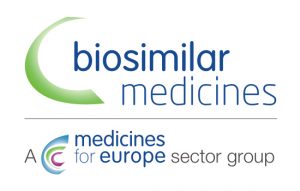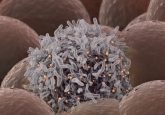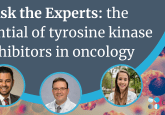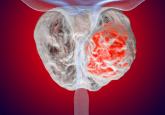Ask the Experts: what are the challenges surrounding biosimilar medicines? (Part II: potential for reinvestment in health and future outlook)
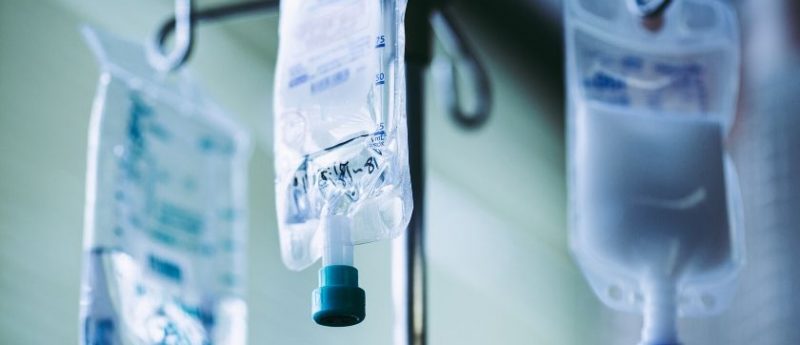
In our two part ‘Ask the Experts’ series, we discuss the benefits, challenges and implications of biosimilar medicines, providing perspectives from a panel with expertise including research, clinical practice and policy development. What are the biggest challenges surrounding the introduction of biosimilars? In which ways could any economic savings be reinvested? How will the field progress in the next 5 years? With an increasing number of biosimilar medicines being developed, our experts address these questions and more.
Bringing together insights from the hospital clinic to the pharmaceutical industry, our experts are Julie Maréchal-Jamil (Medicines for Europe, Brussels, Belgium), Johan De Munter (University Hospital Ghent Cancer Center, Brussels, Belgium), Zorana Maravic (Digestive Cancers Europe, Brussels, Belgium) and Wojciech Jurczak (National Institute of Oncology, Cracow, Poland).
You can read the second instalment of this discussion below, which explores the subsequent potential for reinvestment in health and what the future holds for the field of biosimilars. Part I can be found here.
In your opinion, how can biosimilars help reduce the price of cancer drugs?
Wojciech Jurczak: Biosimilars do reduce the price, by 30–50%, and we can just see it. So, what usually happens is that after introducing biosimilars, we have better access to drugs. A good example is G-CSF (granulocyte-colony stimulating factor) biosimilars. After they were introduced in the UK, the growth factors were more frequently used in primary neutropenia prophylaxis, which was not the case before. So, at the same or even reduced cost of health care, there was greater access to the important treatment.
Julie Maréchal-Jamil: Biosimilar medicines provide benefits to the healthcare system by creating competition for biologic medicines that have usually become, over the years, the standard of care in their therapy area. Once the originator medicine monopoly has ended, they come as alternative therapeutic options available to prescribers and medicines purchasers. Having multiple providers of a given biologic therapy stimulates price competition between equivalent therapeutic options as well as competition on other features beyond price, for example administration device and storage conditions.
It is essential to ensure multiple versions of a biologic medicine (including biosimilar medicines) are used in practice, to enable cost-efficiency gains for a given biologic therapy over time.
Experience has shown that competition provides for cost-efficiency gains beyond the available biosimilar medicines, leading to price erosion for the entire INN (International Nonproprietary Name), including the originator product, and sometimes across the entire product class, for example anti-TNF medicines in rheumatology.
In oncology, where a wave of new products (including targeted therapies) has increased pressure on budgets, the use of biosimilar medicines is essential to ensure sustainability of access to standard-of-care therapy. It has been astonishing over the past number of years to witness the difference biosimilar medicines have made in oncology which extend beyond cost reduction. The efficient use of biosimilar medicines has seen more cancer patients get timely access to the treatment they need without impacting the overall healthcare budget. In some countries, like the UK, the number of patients treated with filgrastim has more than doubled after the introduction of the biosimilar medicines. In some Eastern European countries, access to biologic therapy has been created with the availability of the biosimilar versions. Use of biosimilar medicines has also resulted in the re-directing of hospital resources into better care for patients, like patient or carer support programs, or hiring additional nurses. For oncologists, restrictive guidelines due to cost have been eased, meaning they have a wider range of treatment options for their patients. Biosimilar medicines have altered the landscape in oncology, and even more benefits are achievable once we ensure their use is efficient and consistent throughout the EU.
Johan De Munter: Many of the latest innovative and necessary cancer treatments are vastly expensive. The high cost of current cancer treatments represents one of the main challenges to establish sustainable healthcare on national and international levels.
A big advantage of biosimilars is that they can create market competition and through this potentially lower the costs of cancer treatments.
However, increasing availability of biosimilars may not always create immediate savings! As access to treatment increases due to the availability of biosimilars, the population of patients treated with this medicine will also increase. As a result, the overall cost will stay the same but the overall health outcomes for patients will improve. In turn, the increasing numbers in the user population can be used in price negotiations with manufacturers to drop the prices.
Secondly, when large user groups arise it becomes interesting for health regulation authorities to launch a tender to obtain the best price for the medicine. Tenders usually have the effect that producers adjust their price as sharply as possible, without compromising the product quality, which is usually to the advantage of the user and in this case the overall healthcare system.
Zorana Maravic: Cancer treatment is a complex one, with many biologics that are imperative for (prolonged) patient survival and many drugs applied in combination, there are several lines of treatment. Equally important is that supportive cancer care is administered. In general, biosimilars cost up to 30% less than their reference products. In many countries, these savings are much higher and can exceed 50%. Total savings vary from country to country, going up to 8% and on average 4–6% of total medicine expenditure. In the era of new developments such as immunological therapies and treatment of cancer patients by doublets and triplets, these savings are not sufficient to cover the new drugs and tests that are needed for cancer treatment. Therefore, we should work collectively to remove hurdles and fully unlock the potential of biosimilars, as these will create additional savings.
In which ways do you think the economic benefits accrued from utilizing biosimilars could be used in the health system?
JDM: Introducing biosimilars in cancer care has the potential to reduce purchase costs that could result in savings. Mostly, these savings are not directly for the benefit of the local healthcare teams, but rather a benefit for the local or national healthcare system.
To share the benefit of the savings from introducing biosimilar medicines, we need strong collaborations between all healthcare stakeholders. This means we need to build collaborative processes to maximize the use of affordable medicines, such as biosimilars.
Savings from greater efficiency in the use of medicines need to be distributed and invested in national healthcare services to fund multidisciplinary initiatives to support the greater access to cancer therapies for more patients. Subsequently, as more patients receive treatment, we will need more educated cancer nurses to provide and administer cancer treatments in a correct and safe way.
As more patients with cancer benefit from treatment, there will be proportionally more treatment-related adverse effects and toxicities. Like in all cancer treatments, the offset of adverse effects could lead to increased healthcare usage and increased treatment costs. Additionally, patients’ reduced participation in economic society entails additional costs for the overall healthcare system.
In my opinion, part of the economic benefits accrued from utilizing biosimilar medicines should be used to establish an acceptable ratio of nurses specializing in cancer care in order to benefit access, delivery and management of the impact of current cancer treatments.
JMJ: The most relevant reinvestment of available health care resources is best defined by the concerned healthcare community, i.e. oncologists, health care professionals in the oncology setting and of course, patients: they are central in oncology care and the witnesses of its successes and failures.
As medicines providers, what we have seen is that there remains room for optimization at different levels. Where biosimilar medicines have been introduced, we have seen broader access, earlier access unfold as well as future access emerge.
The economic benefits will depend on geographies and the local framework in place. Use of biosimilar medicines in other therapeutic areas (such as rheumatology) hugely increased the number of patients treated with biologics. The introduction of biosimilar medicines in oncology should give an opportunity for eligible patients to receive treatment in a timelier manner (according to relevant guidelines). Beyond the obvious benefit to the patient, this can reduce inequalities in access to treatment that still exist across Europe, as have been observed in the study done by ESMO As well as in a report by the All.Can initiative.
They can be reinvested in many different ways to enhance patient care in the broad sense, ranging from access to biologic therapy (earlier where appropriate), access to innovative therapies for those who do not respond adequately to the standard of care, as well as outside medicines per se, for example to expand screening diagnostic programs, to support surgeon training programs, to hire more nursing staff, or update hospital technology and equipment.
Benefit-sharing models have proven, highly efficient means to foster both biosimilar medicines adoption, as well as improved care. These models typically involve all actors of the healthcare system alongside policy makers and allow each stakeholder group to help define the most meaningful benefits for the healthcare community.
There are many examples of benefit-sharing, some established at national level, many at a more regional or local/hospital level. Feedback shows that the more tangible the benefits are for the stakeholders, the greater the confidence in the framework and adoption of biosimilar medicines.
ZM: Looking from the patients’ point of view, it is crucial that patient organizations and advocates are involved in the whole process, together with other relevant stakeholders (pharmacists, clinicians and nurses). Drugs and biosimilars are developed for patients, so patient perspective on the use of biosimilars is critical. Patients should be formally represented and consulted in all regulatory bodies, both at the regional and national level. For patients, saying that use of biosimilars might save costs means nothing to them at a personal level, except maybe the worry that they will get something of a poorer quality. But patients can feel the benefits when they see that the savings are utilized to improve the facilities where they are being treated, employing additional nurses to administer the treatment or organizing services that are currently not available to them such as counseling, dietician advice, physical therapy or other services that could improve their cancer care by proper communication about benefits and outcomes of biosimilar administration.
Similarly, clinicians who are prescribing biosimilars should be incentivized because they need more time to properly educate their patients on biosimilars. The same applies to nurses spending the most time with patients during treatment. They also need to be properly educated not just on the science behind biosimilars, but also on how to communicate it to patients. Obviously, the majority of savings should be reinvested for new treatment options or later lines, but there are other ways to improve cancer care beyond the drugs.
How can clinical trials for assessing biosimilars be streamlined?
JMJ: Biosimilar medicines have been authorized in the EU since 2006. There are over 50 authorized biosimilar medicines for 15 reference medicines covering a wide range of therapy areas and biologic molecule features and modes of actions. The regulatory and scientific experience is vast, and so is the post-approval clinical experience, with over 700 million patient treatment days in the EU.
Building on EU regulators’ considerable scientific knowledge and cumulative experience, including with originator biologic medicines, the large set of available data can inform on the fitness-for-purpose of existing regulatory requirements and processes.
Recent publications are pointing towards the possibility, based on science, to expedite biosimilar development particularly where tailored clinical comparability trials can be envisaged. While the current development paradigm and regulatory approval process has established a high level of confidence in biosimilar medicines, it has become apparent that the requirement to demonstrate comparative clinical efficacy can have limited value in the overall regulatory assessment and decision-making process for biosimilarity.
Adapting the biosimilar development paradigm to encourage tailored clinical development programs will facilitate development of these products and ensure that the clinical data package is providing the relevant and definitive data to establish that a biosimilar will have no clinically meaningful difference to the reference biologic that it is designed to match. This in turn will have a direct and positive impact on patient access.
This once again ties in with the need for continued education on the evolving regulatory science principles, particularly of prescribers, so that the scientific grounds for the evolution are understood and that confidence in the similarity of clinical outcomes is broadly shared.
WJ: It is possible to accelerate biosimilar development and substantially decrease its cost by improving the clinical studies. It’s a matter of us accepting pharmacodynamic and pharmacokinetic endpoints as their primary targets, more important than efficacy. Biosimilar development is based on a profound preclinical analysis of the drug with all the possible methods and tests we have, regarding both the physico-chemical properties and also efficacy tests in vitro. However, we still require an in vivo confirmation in clinical studies. So, the smaller the number of patients necessary, the better for the biosimilar development, because the development may become less expensive and may take less time. However, in order to meet efficacy endpoints, even to compare response rates, we usually need at least a couple of hundred patients. If the FDA and EMA could change the biosimilar approval pathway and regard pharmacokinetics and pharmacodynamics as reliable endpoints for the drug development, it could make the drug development pathway shorter and cheaper.
Where do you see the field progressing in the next 5 years?
JDM: Biosimilar medicines have been around for over a decade in Europe, but the uptake of biosimilars is still limited by unfamiliarity with the products, misconceptions and safety concerns.
As some of the most prescribed biologics are facing patent expiration in the near future, the biosimilar medicines market will hopefully grow. This trend could further stimulate biosimilars competition, which can offer advantages to the European healthcare systems, as increased biosimilar availability is expected to improve patients’ access to cost-effective treatment in cancer care.
As therapeutic and supportive care, biosimilar medicines have the potential to improve the sustainability of cancer care by increasing the accessibility of treatment and providing lower-cost alternatives to their innovator reference drugs. Efforts should be made across Europe to align, reinforce and monitor the uptake of biologic and biosimilar medicines across the individual European member states.
The level of stakeholders’ knowledge of biosimilar medicines is increasingly ascending. Nevertheless, a substantial need for further education remains for all healthcare professionals and patients in the near future. Interdisciplinary educational initiatives focusing on the successful uptake and safe integration of biosimilar medicines in cancer care should be available and accessible for all stakeholders, including cancer nurses.
Equivalent recognition of the value and contribution of cancer nursing in cancer care and treatment will be pivotal over the coming years. Investments in nursing specialized in cancer care will not only improve the quality of care but will bring a sustainable solution for the emerging workforce shortage in cancer nursing. Increased access to highly specialized cancer treatments like biosimilar medicines will demand unavoidable and equal need for educated and trained cancer nurses to ensure safe practice and best patient outcomes across Europe.
The next few years will bring different challenges in cancer care. Together, making the right decisions and investments will be crucial. Only in this way can we unfold the full potential of cost-effective cancer care that helps build on a sustainable healthcare system for all of us.
WJ: If you look at the number of biological drugs that are the best sellers in terms of economics, most of them will have a biosimilar in 5 years. It would mean that not just hematology, but most oncology biological drugs will have biosimilars. Therefore, I think that there will be no revolution, but rather an evolution, with increasing numbers of drugs with biosimilars and an important economic impact.
ZM: The concept of biosimilars will disappear in the minds of patients. It will become so obvious that there is a portfolio of drugs to treat different types of cancer that the distinction between originator and biosimilar will become obsolete. The current perceptual biases against biosimilars are the result of a lack of familiarity. This distinction will have disappeared 5 years from now. The mindset will be: has the drug been approved or not? And if it has been approved, it should be good for use.
JMJ: Over the next decade, the number of biologic therapies that will lose their monopoly will grow, and the number of biosimilar medicines available in different oncology indications will expand beyond what we know today.
Among others, there are two important workstreams ahead:
On the one hand, it will be essential to pursue the ongoing educational efforts among prescribers, other healthcare professionals and patients/patient organizations. Trust and confidence in biosimilar medicines are the cornerstone to biosimilar medicines use. Feedback on the clinical experience to date needs to be shared broadly, within and across therapeutic areas. Within therapeutic areas, the objective will be to ensure that overall awareness and understanding grows. Across therapeutic areas, as future biosimilar medicines will be approved for new indications, the objective will be to ensure new stakeholder groups can benefit from the past experience and learnings over the last 13 years.
On the other hand, the sustainability of access to cancer care medicines is a moving target. What we see today is significant, yet tomorrow’s portfolios bear limited resemblance with today’s blockbuster products. Many future biosimilar medicine candidates will target smaller patient populations and focus on very specific indications, for example biologic medicines for rare diseases or orphan medicines. This evolution warrants a renewed dialogue with regulators in the EU but also globally, as well as with policy makers in order to ensure informed policy decisions are taken to allow building a suitable framework for competition under these new circumstances, in time to seize the upcoming opportunities. In terms of pharmaceutical budgets and spending, tomorrow’s portfolios also emphasize the need to prioritize mid- to long-term reflection over short-term gains to ensure a sustainable biosimilar offer and optimal benefits for EU healthcare systems.
Julie Maréchal-Jamil
 Director Biosimilars Policy & Science – Medicines for Europe
Director Biosimilars Policy & Science – Medicines for Europe
Since October 2015, Julie has been leading the Biosimilar Medicines Group, a sector group of Medicines for Europe. Her work consists of creating and nurturing partnerships with experts in pharmaceuticals and across healthcare systems, balancing interests for a resilient and sustainable healthcare framework. The main objectives of the biosimilar medicines group are to support and facilitate the design, evolution and implementation of policies aimed at creating efficiency gains thanks to biosimilar medicines use and greater access to health services and products for all patients. From January 2019 onwards, she co-chairs the biosimilars committee of the International Generic and Biosimilar medicines Association (IGBA) focusing on convergence of global policies and standards. Her knowledge and understanding of the scientific, regulatory and health policy environment at EU and international levels, as well as of the functioning of the EU ecosystem, greatly supports her effective engagement with all the players involved. Prior to this, Julie was part of Medicines for Europe’s regulatory and scientific affairs team for 8 years, with responsibilities in the areas of quality, compliance, environment, health & safety as well as bioequivalence. With an MSc in Pharmacology, she previously worked in the pharmaceutical industry.
Johan De Munter
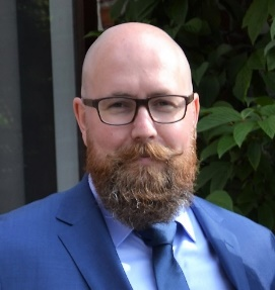 Johan De Munter has been working for almost 20 years as a registered nurse in the oncology and hematology field. After several postgraduate qualifications, he started to work as an oncology/hematology nurse consultant in a general hospital. In 2010, he transferred to University Hospital Ghent Cancer Center to work as a nurse consultant in the hematology/stem cell transplant unit. Professional interests include healthcare providers and patient education, supportive care needs, AYA (adolescents and young adults) cancer and survivorship care with a focus on evidence-based cancer nursing, quality of care, advocacy and communication.
Johan De Munter has been working for almost 20 years as a registered nurse in the oncology and hematology field. After several postgraduate qualifications, he started to work as an oncology/hematology nurse consultant in a general hospital. In 2010, he transferred to University Hospital Ghent Cancer Center to work as a nurse consultant in the hematology/stem cell transplant unit. Professional interests include healthcare providers and patient education, supportive care needs, AYA (adolescents and young adults) cancer and survivorship care with a focus on evidence-based cancer nursing, quality of care, advocacy and communication.
He is currently a board member and past president of the chemotherapy working group in the Belgium Society for radiotherapy and oncology nurses. He is an active member of the Belgian Hematology Society nurses committee. Since 2018, he has been an elected European Oncology Nursing Society Board member and was voted President Elect in 2019. He is also a voluntary board member of the Majin house, which is a support home for people with cancer in Belgium.
Zorana Maravic
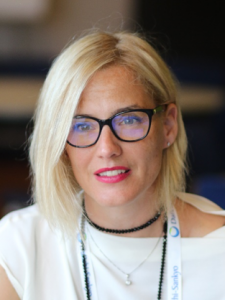 Zorana Maravic is Director of Operations at Digestive Cancers Europe, previously EuropaColon, the first and only European digestive cancers patient umbrella organization. In her position, Zorana is responsible for the co-ordination and support of member groups, as well as establishing relationships with new organizations in order to continue the network growth. As an experienced project manager, Zorana has managed many of the projects undertaken by the organization, such as the survey on the unmet needs of patients living with metastatic colorectal cancer, which recruited more than 800 patients, with the results disclosed in several publications that Zorana authored. She has also organized several masterclass events (educational annual meetings for member groups), developed various awareness campaigns including European Colorectal Cancer Awareness Month Campaigns, participated in various projects organized by the pharmaceutical industry and independent consortia, and worked closely with the Patient Advisory Committee on the production of different educational materials to support patients. In addition, Zorana acts as a public speaker on topics such as patient support, biosimilars and CRC screening.
Zorana Maravic is Director of Operations at Digestive Cancers Europe, previously EuropaColon, the first and only European digestive cancers patient umbrella organization. In her position, Zorana is responsible for the co-ordination and support of member groups, as well as establishing relationships with new organizations in order to continue the network growth. As an experienced project manager, Zorana has managed many of the projects undertaken by the organization, such as the survey on the unmet needs of patients living with metastatic colorectal cancer, which recruited more than 800 patients, with the results disclosed in several publications that Zorana authored. She has also organized several masterclass events (educational annual meetings for member groups), developed various awareness campaigns including European Colorectal Cancer Awareness Month Campaigns, participated in various projects organized by the pharmaceutical industry and independent consortia, and worked closely with the Patient Advisory Committee on the production of different educational materials to support patients. In addition, Zorana acts as a public speaker on topics such as patient support, biosimilars and CRC screening.
Wojciech Jurczak
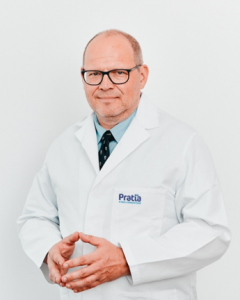 Wojciech Jurczak is a consultant and professor of hematology at the National Institute of Oncology (Cracow, Poland), where he leads the local lymphoma team, serving for the southern eastern part of the country. It is the reference center for about 6 million people. Most of his research activity in the first 15 years of his profession has been related to the development of monoclonal antibodies and other targeted therapies in lymphomas. In the last decade, his lymphoma team has taken part in over 100 clinical trials, including registration studies for Ibrutinib, Acalabrutinib, Zanubrutynib, Idelalisib, Belinostat, Ventoclax, Lenalidomide, Brectuximab vedotin and Rituximab biosimilars.
Wojciech Jurczak is a consultant and professor of hematology at the National Institute of Oncology (Cracow, Poland), where he leads the local lymphoma team, serving for the southern eastern part of the country. It is the reference center for about 6 million people. Most of his research activity in the first 15 years of his profession has been related to the development of monoclonal antibodies and other targeted therapies in lymphomas. In the last decade, his lymphoma team has taken part in over 100 clinical trials, including registration studies for Ibrutinib, Acalabrutinib, Zanubrutynib, Idelalisib, Belinostat, Ventoclax, Lenalidomide, Brectuximab vedotin and Rituximab biosimilars.
Interested in finding out more about biosimilars? Visit Medicines for Europe
